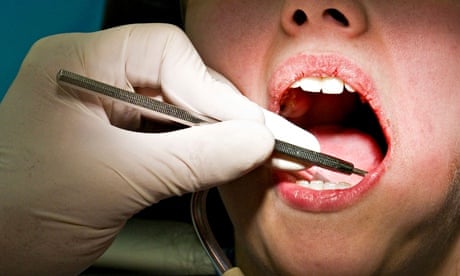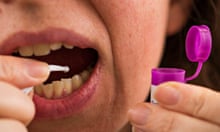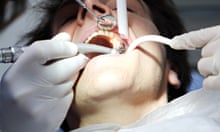Scientists have developed a new pain-free filling that allows cavities to be repaired without drilling or injections.
The tooth-rebuilding technique developed at King's College London does away with fillings and instead encourages teeth to repair themselves.
Tooth decay is normally removed by drilling, after which the cavity is filled with a material such as amalgam or composite resin.
The new treatment, called Electrically Accelerated and Enhanced Remineralisation (EAER), accelerates the natural movement of calcium and phosphate minerals into the damaged tooth.
A two-step process first prepares the damaged area of enamel, then uses a tiny electric current to push minerals into the repair site. It could be available within three years.
Professor Nigel Pitts, from King's College London's Dental Institute, said: "The way we treat teeth today is not ideal. When we repair a tooth by putting in a filling, that tooth enters a cycle of drilling and refilling as, ultimately, each 'repair' fails.
"Not only is our device kinder to the patient and better for their teeth, but it's expected to be at least as cost-effective as current dental treatments. Along with fighting tooth decay, our device can also be used to whiten teeth."
A spinout company, Reminova, has been set up to commercialise the research. Based in Perth, Scotland, it is in the process of seeking private investment to develop EAER.
The company is the first to emerge from the King's College London Dental Innovation and Translation Centre, which was set up in January to take novel technologies and turn them into new products and practices.
King's College is a participant in MedCity, a project launched by the London mayor, Boris Johnson, to promote entrepreneurship in the London-Oxford-Cambridge life sciences "golden triangle".
The chairman of MedCity, Kit Malthouse, said: "It's brilliant to see the really creative research taking place at King's making its way out of the lab so quickly and being turned into a new device that has the potential to make a real difference to the dental health and patient experience of people with tooth decay."











Comments (…)
Sign in or create your Guardian account to join the discussion